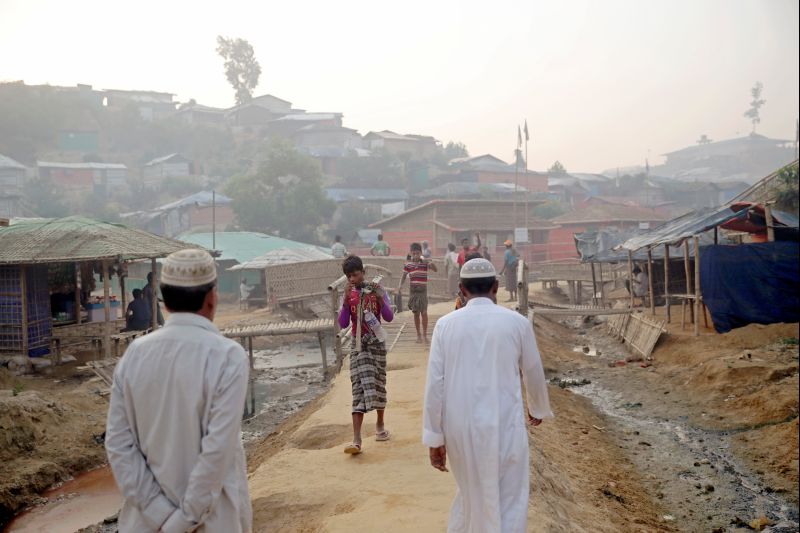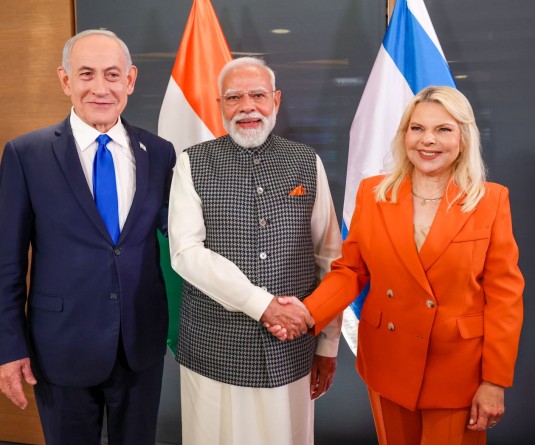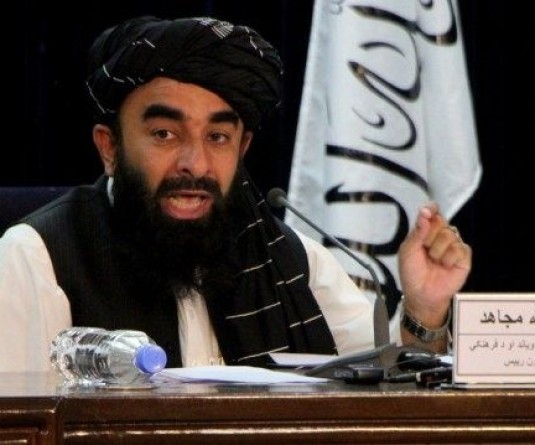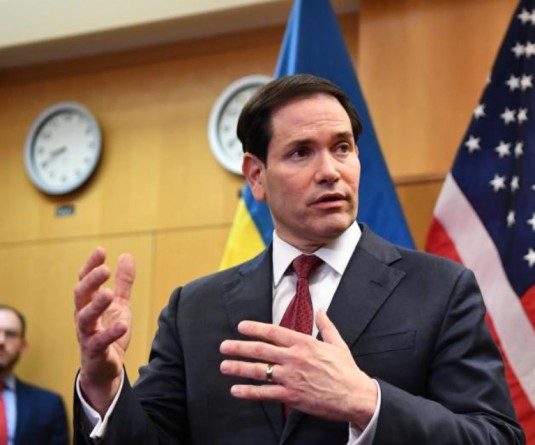Bangladesh blocks internet services in Rohingya refugee camps

Rohingya refugees walk on a road at the Balukhali camp in Cox's Bazar, Bangladesh on April 8, 2019. (REUTERS File Photo)
DHAKA, September 3 (Reuters): Bangladesh's telecom regulatory authority on Tuesday ordered mobile phone operators to partially block high-speed data services to areas where Rohingya refugees are living in sprawling camps, citing security concerns following recent violence in the area.
The move came following a spike in violent crime in the southern district of Cox's Bazar, where more than one million Rohingya are sheltered.
"We have asked the operators to stop 3G and 4G services from 5pm to 6am in the camps in Cox's Bazar," said Zakir Hossain Khan, spokesman for the Bangladesh Telecommunication Regulatory Commission (BTRC), adding the decision had been made for security reasons.
"They have also been asked to inform us by Sept. 9 what measures they are taking to withdraw the SIMs that are being used by the Rohingya community and what they will do to stop selling SIMs to them," he added.
The operators were asked on Sunday to block mobile services and stop selling mobile SIMs to the Rohingya.
The order to stop mobile services had been reissued following reports of providing mobile phone services to Rohingya through selling of SIM cards by carriers defying a government ban, Khan said.
More than 730,000 Rohingya fled Myanmar's Rakhine state for Bangladesh after a military-led crackdown in August 2017 that the United Nations has said was perpetrated with "genocidal intent". Myanmar has denied almost all the allegations.
Efforts to begin repatriating 3,450 Rohingya cleared by Myanmar failed on Aug. 22 after none agreed to go, almost a year after a similar effort failed amid protests.
But with continuing uncertainty over their return to Myanmar, refugees in Bangladesh are being drawn towards drugs and violent crime, according to officials.
Tensions are running high in the camps after a youth wing leader from Bangladesh's ruling Awami League party was killed last week, allegedly by Rohingya refugees, and at least four Rohingya were shot dead by police.
“We are working round-the-clock to maintain safety and security in the camps. But the situation is getting worse day by day,” said Iqbal Hossain, additional superintendent of police in Cox’s Bazar.
Rohingya refugees said the communication blackout will isolate Rohingya from family in Myanmar.
"Why Bangladesh is being too harsh towards us? How we will communicate with our relatives in Myanmar?," Abdur Rahim, a Rohingya leader in Cox's Bazar, told Reuters by phone.
"This will have a bad impact on crimes also. How will we inform the police immediately if any crimes are happening in the camps?"
Bangladesh has four mobile companies that include Grameenphone, majority owned by Norwegian telecoms group Telenor; Robi Axiata; Telecom Ventures’s Banglalink; and state-owned Teletalk.
The operators did not immediately respond to requests for comment.






